C-sections have become festive events in Brazil, where they’re more common than natural deliveries
“Don’t we get dressed up for parties and special dates? It’s the same thing,” Mariana Casmalla tells Marina Lopes
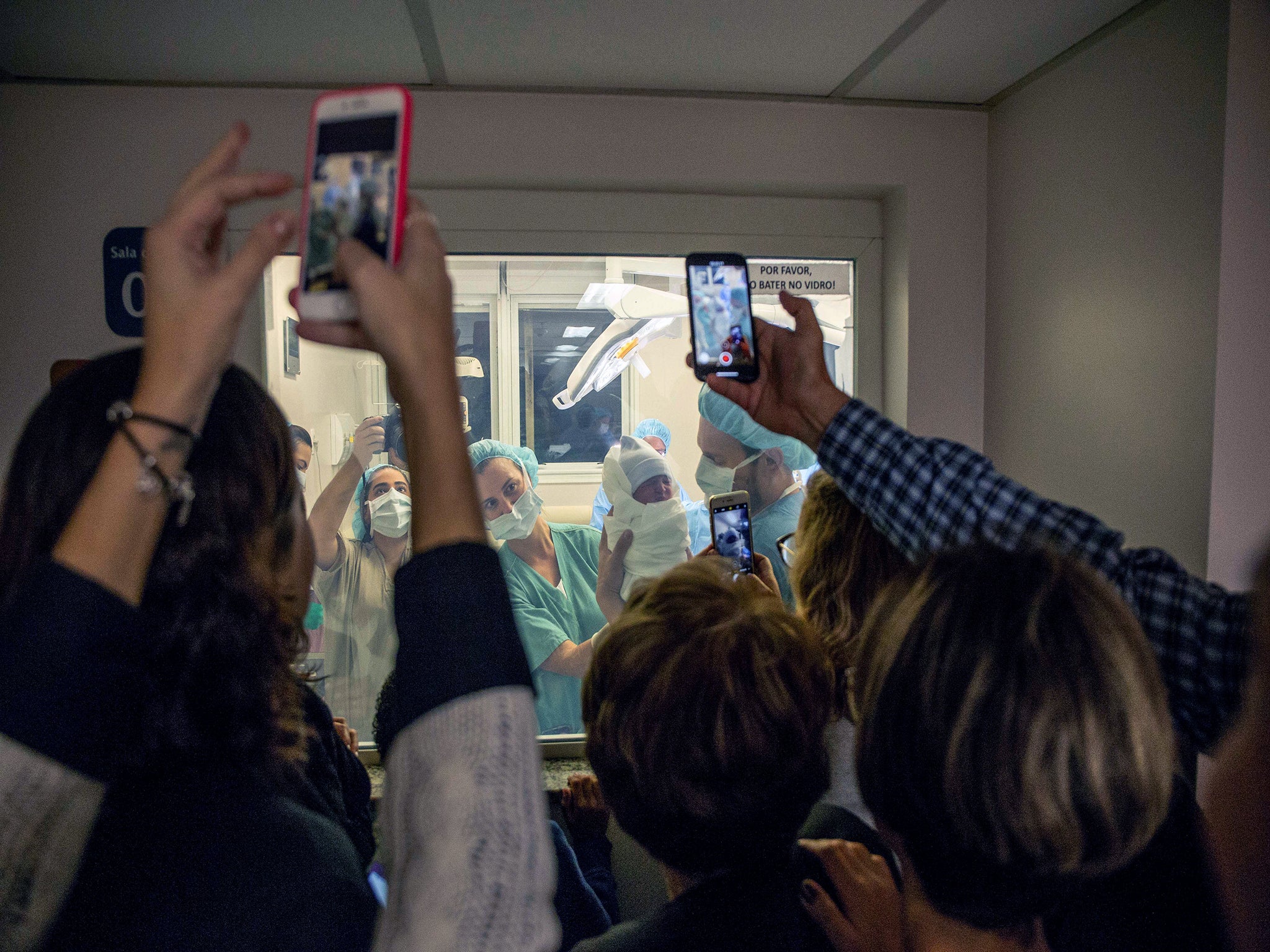
The white-gloved women lay chocolates and cakes on silver trays. They fill the crystal vases with roses. Now the guests are arriving. Mariana Casmalla has been buffed, primped and polished in preparation for this moment.
She is ready for her C-section.
“It’s a special occasion,” explains Casmalla, a 28-year-old dental surgeon, batting professionally made-up eyes.
“Don’t we get dressed up for parties and special dates? It’s the same thing.”
Elective caesarean sections have long been a status symbol among Brazil’s elite, a way for some of the country’s wealthier women to avoid the unpredictability of natural childbirth. The country has one of the highest rates of caesarean births in the world – they account for 55.5 per cent of all deliveries in Brazil, spiking to 84 per cent in private hospitals, according to the Public Health Ministry. The rate in the United States for all hospitals is 32.9 per cent, and about 29 per cent in the UK.
Now the phenomenon is inspiring a new industry of party planners, makeup artists and caterers, focused on turning these highly orchestrated operations into wedding-like spectacles, produced for an audience.
The main event: the birth itself, viewed by family and friends from a gallery built for the purpose.
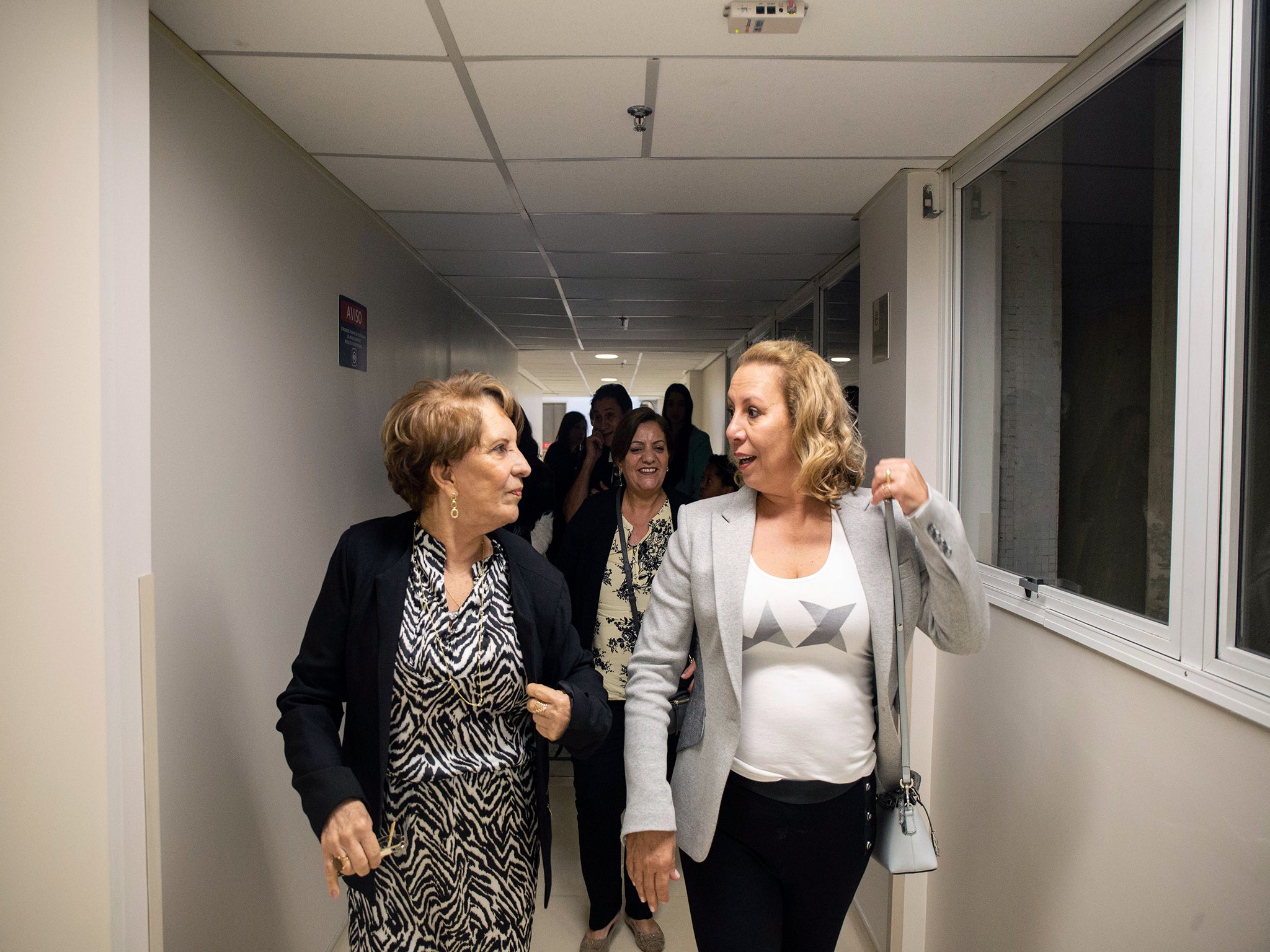
At the Sao Luiz private hospital in Sao Paulo, a mother-to-be can get her hair and makeup done in her hospital room. For 2,000 reais per day – about £400 – her family can rent out the presidential suite, with a living room and bathroom for guests, a balcony and minibar. Mothers can request their favourite flowers and magazines, and even change the furniture if it clashes with their planned decorations. A 22-storey maternity ward now under construction will include a wine cellar and ballroom.
“It’s cultural,” says Marcia da Costa, the hospital’s director. “Brazilians want to plan for everything. They don’t want to hit traffic on the way to the hospital. They want to get their nails done, get a wax, to plan it like an event.”
Still, da Costa and other health professionals are ambivalent. The World Health Organisation has long campaigned to reduce elective C-sections, which are nearly twice as deadly for mothers than natural births and require longer recovery times for mothers and babies.
In Brazil, public health officials and some of the country’s top doctors have worked to cure the upper class of its penchant for the procedure.
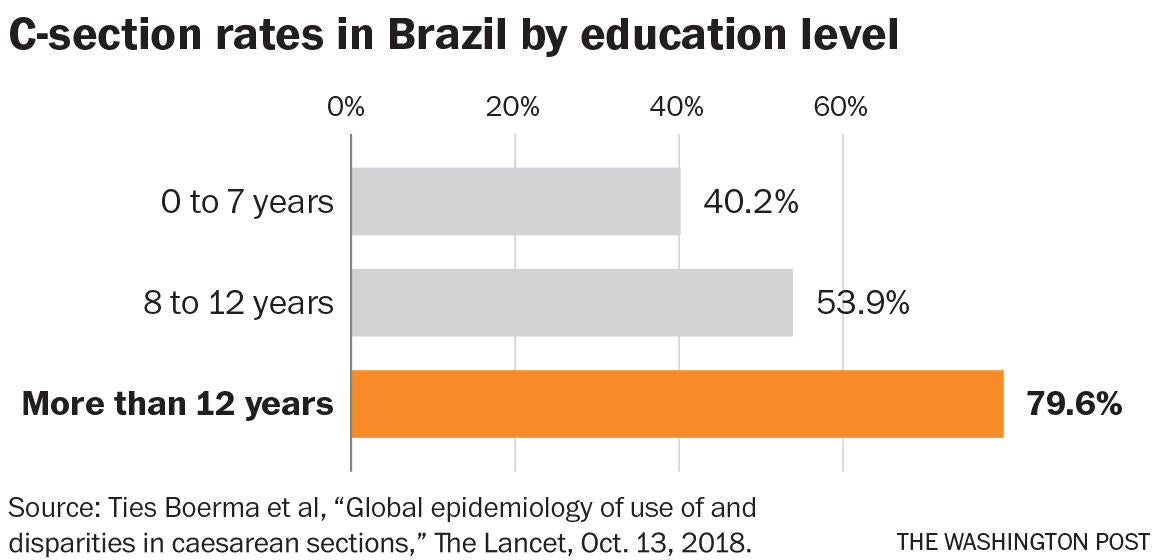
Costs vary, but C-sections are generally more expensive than natural childbirths. While the risk of maternal death in well equipped private hospitals is low, haemorrhage and infection are more likely in an elective caesarean than in a natural birth. For babies, C-sections have been linked to higher rates of respiratory distress, diabetes and high blood pressure.
The WHO estimates that about 10 per cent of births require a C-section.
“Here we had the opposite statistics,” says Rodrigo Aguiar, a director at Brazil’s National Supplementary Health Agency, which regulates private hospitals.
The numbers are even more pronounced during the holiday months, he says, when women and doctors call for elective C-sections before the baby is ready to be born. This leads to higher rates of respiratory problems for infants and prolonged hospital stays for mothers and babies.
“We saw that we had to re-evaluate these percentages and make sure that birth decisions were being geared towards the health of the mother and the child, and not for convenience,” Aguiar says.
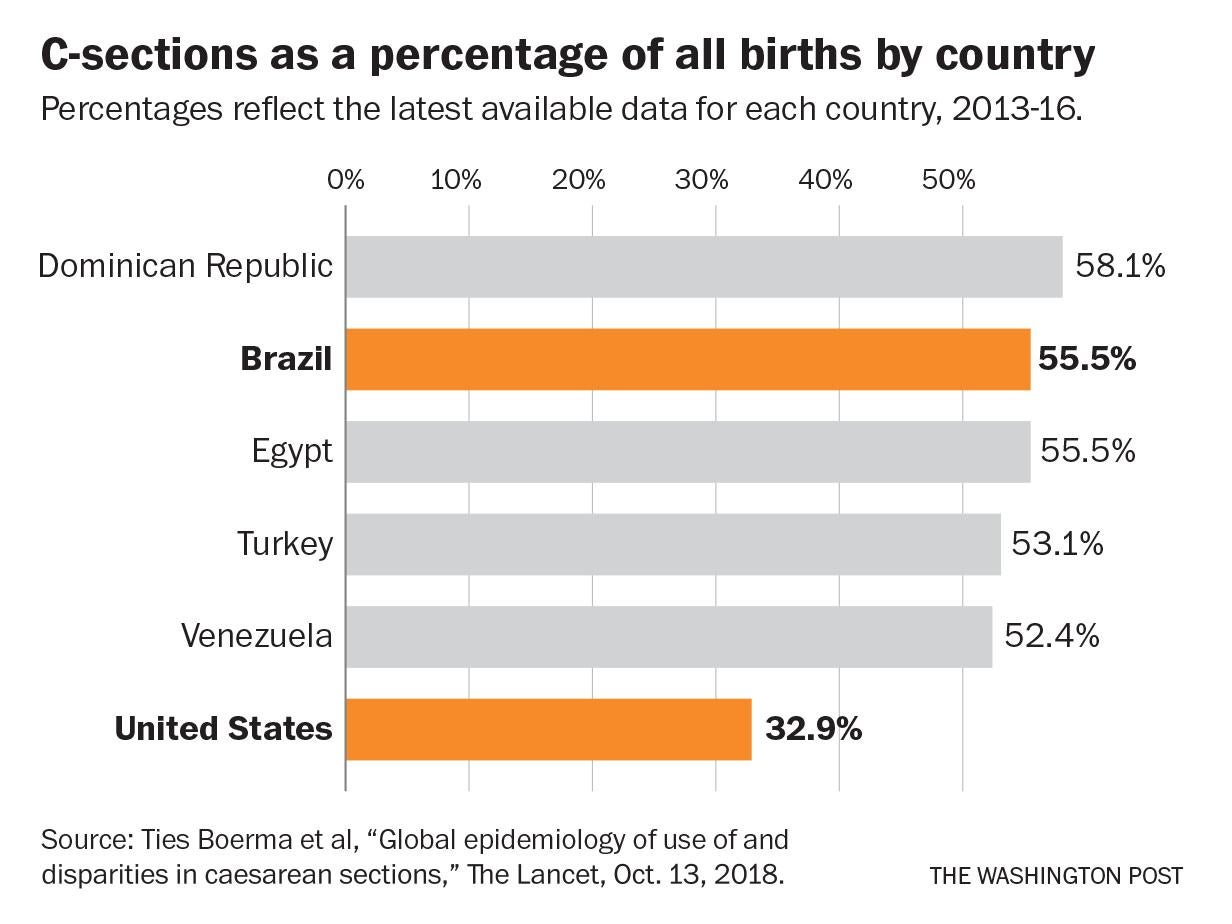
Brazil’s Health Ministry has taken steps to reduce what it calls the caesarean “epidemic”. In 2016, the government banned medically unnecessary C-sections before 39 weeks.
Brazilian women historically have had good reason to fear natural birth. The country’s overwhelmed public health system meant that doctors and nurses lacked the resources to closely monitor women through hours of labour. C-sections allowed the staff to closely monitor mothers for a shorter amount of time.
At private hospitals, the procedure has gained favour both among mothers – who want their personal doctors, not the on-call staff at the hospital, to deliver their babies – and among doctors juggling busy schedules.
Olimpio de Moraes Filho, president of the Brazilian Federation of Obstetrics and Gynecology, says caesarean sections fit some lifestyles.
“C-sections today are much safer than they were 30 years ago,” he says. “Things are changing. Women are in the job market. Couples are trying to schedule a moment when the family can get together.”
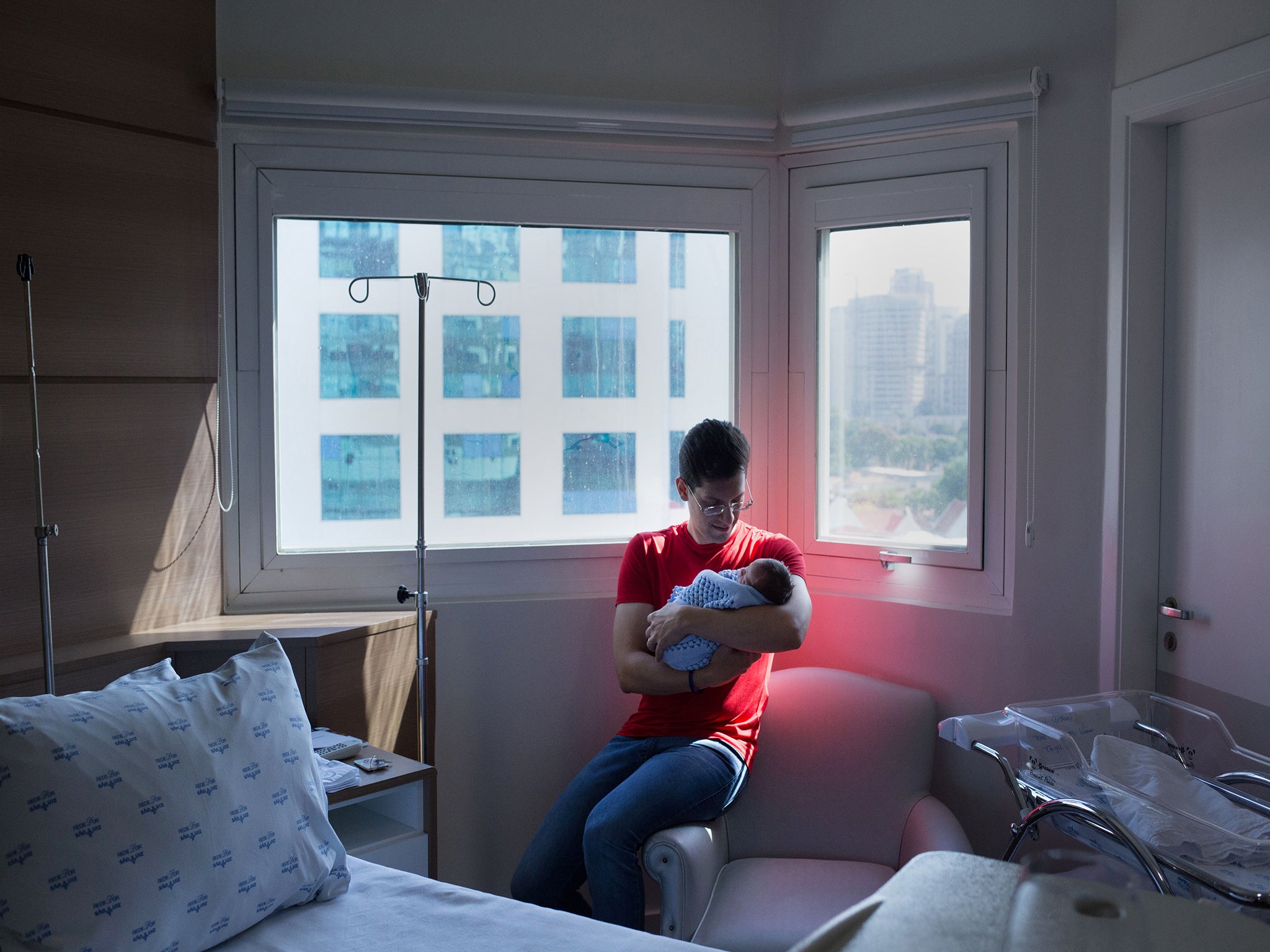
At the Albert Einstein Maternity Hospital in Sao Paulo, the party starts before the baby is born. A frosted window looking into the operating room turns transparent for the surgery, allowing guests to see the moment of the birth.
As Casmalla is wheeled to her operating room, 15 of her closest family members and friends trail behind. They gather around the window, ears pressed to the wall, listening for the baby’s first wail.
When the doctor pulls Lorena from the incision in Casmalla’s abdomen, the window turns transparent. Casmalla gives the audience a thumbs-up.
“She’s here!” says Casmalla’s mother-in-law, Marisol, tearing up. Relatives watching on FaceTime ask for closer looks.
Paula Ascar Baracat is co-founder of Estudio Matre, a party-planning service that specialises in maternity wards. She says new mothers increasingly prefer receiving guests at the hospital, rather than at home.
“The mum has just given birth, she is learning to breastfeed, she doesn’t want to entertain at home,” Baracat says. “So while she’s getting ready for the birth, we are getting ready to host.”
Baracat’s clients spend upward of $10,000 for services that include floral arrangements, guest books, monogrammed sheets, personalised water bottles, and silver-plated favours for guests.
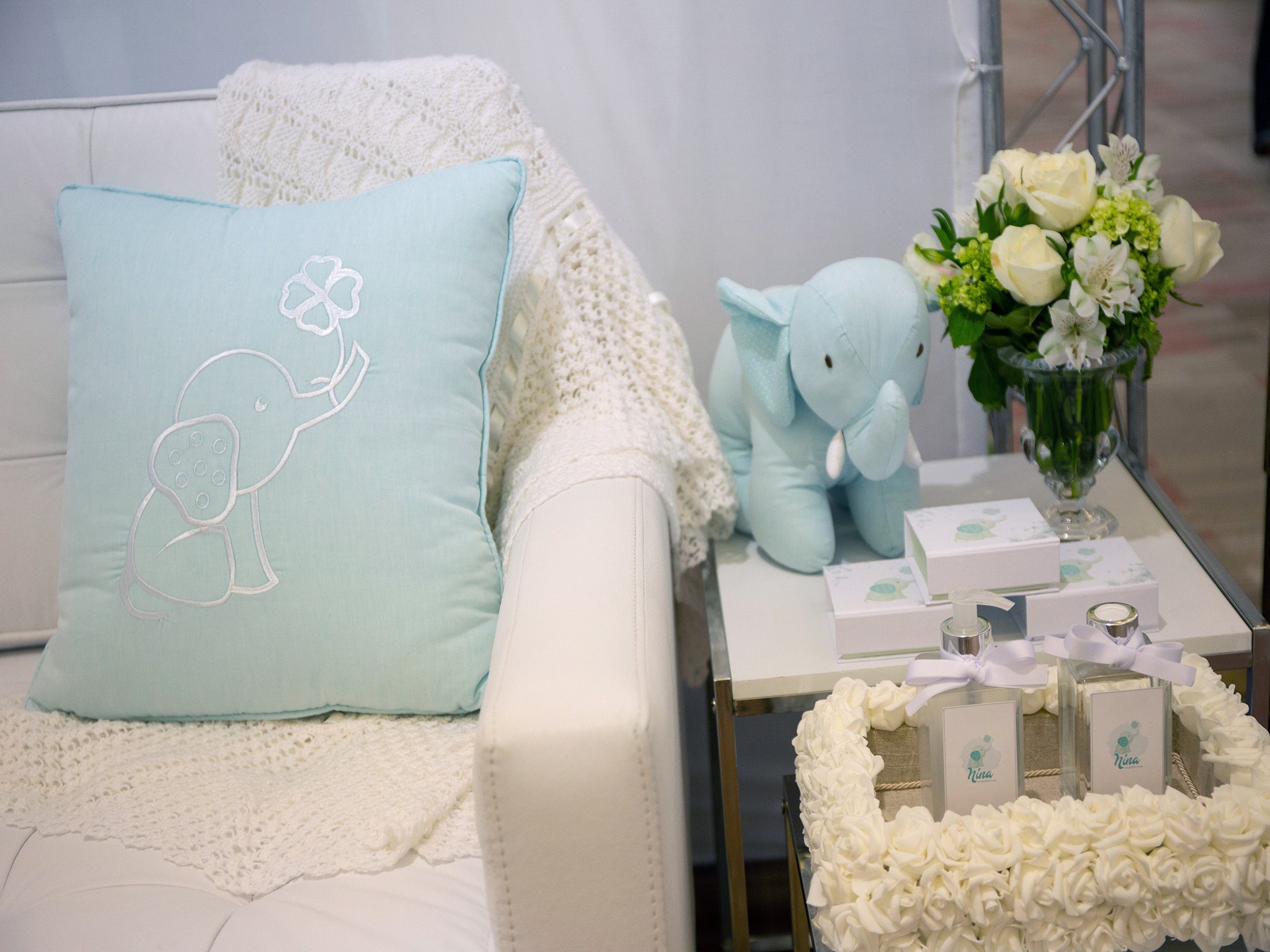
Women who have natural births often seek these services, too. Nina Materna, another party-planning service, has three hotlines that women can call as they go into labour. The company promises to have fully sterilised decorations up within eight hours. But C-sections allow mothers another level of planning.
In 2015, Linus Pauling Fascina, director of the maternity ward at Einstein, called together doctors, doulas, midwives, feminist activists and government officials to discuss ways to increase the rate of natural births in Brazil’s private hospitals.
The group launched the Appropriate Birth Project, a partnership with 35 hospitals to prioritise natural deliveries among the country’s elite.
One of their first steps was to bring the luxury and family experience associated with caesareans to natural childbirth.
Einstein hospital opened five new natural-birth centres with private showers and tubs. At Sao Luiz, women giving birth naturally can choose the colour of the lighting of their in-room whirlpool bathtubs. Fairy lights on the ceiling can turn blue or red, depending on the mood of the patient. All rooms are equipped with MP3 players that patients can load with personalised playlists.
Results came quickly. In four years, the rate of natural births at Einstein rose from 18 per cent to nearly 50 per cent. The program has expanded to more than 200 hospitals.
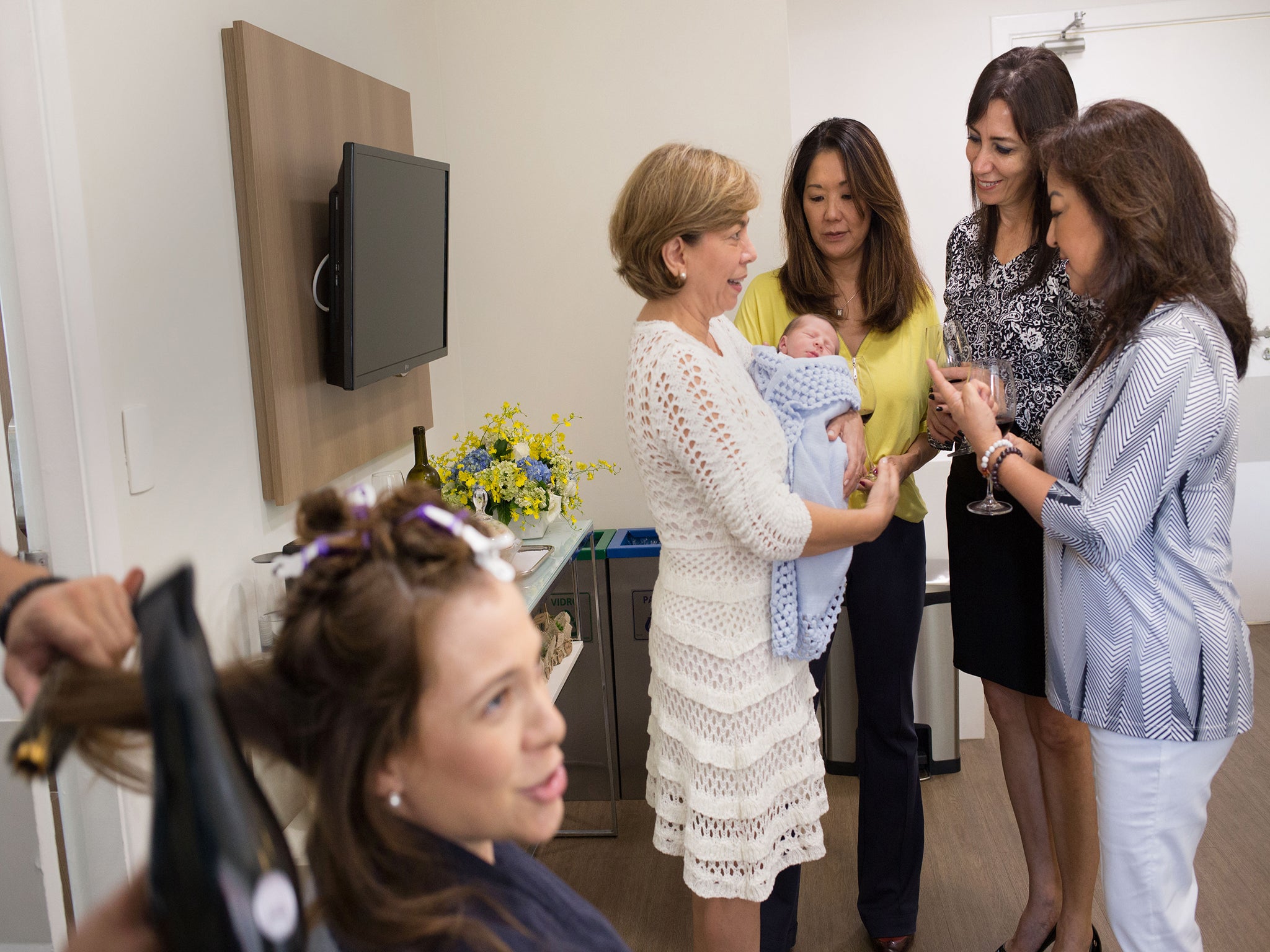
“The changes have to be concurrent for everyone: women, their families, their workplace, doctors, nurses,” Fascina says. “When the husband comes in and says, ‘I’m working, I need to know the date of the birth’ – it’s about learning to plan for the unplannable.”
For Bruna Viera, 32, a natural birth was always out of the question.
“It doesn’t fit with our lifestyle,” she says. “I’m a doctor, and my husband is too. We have a very planned life and had to take vacation for the baby to be born.”
Viera spent weeks planning the drinks and decorations for her maternity room at Sao Luiz. By the time baby Arthur made his debut last month, her hospital room was decorated with blue and white balloons, the fridge was stocked with rum-barrel-aged beer, and the table of her luxury suite was lined with succulent plants – parting gifts for the 80 guests she expected that weekend.
“I love it,” she says. “You feel the tenderness people have for you. Many mums suffer from postpartum depression and feel isolated. Your hormones are raging. But to be surrounded by the people you love, people who saw you grow up, is extraordinary.”
As a half-dozen of her mother’s friends coo at the baby, her husband opens a bottle of wine.
Grandmother Lucimeire Viera sways baby Arthur in her arms while holding a glass of merlot.
“You see, darling,” she explains to the baby. “Life’s a party.”
© Washington Post

Join our commenting forum
Join thought-provoking conversations, follow other Independent readers and see their replies
Comments
Bookmark popover
Removed from bookmarks